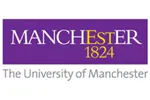

the United Kingdom
University of Manchester, School of Environment, Education and Development| The award | How you will study | Study duration | Course start | Domestic course fees | International course fees |
|---|---|---|---|---|---|
| MSc | Full-time | 12 months | find out | find out | find out |
| MSc | Part-time | 27 months | find out | find out | find out |
Finance-related issues are increasingly important in development, and this programme provides you with a thorough understanding of the specific problems of development finance. We equip you with the necessary skills to make a meaningful contribution to policy formulation and implementation, by focusing on financial development, policy and financial management, with specific reference to developing countries.
The programme is designed to provide:
Informal enquiries, prior to applications, are welcomed. Please contact: Dr Ralitza Dimova (Programme Director) | Email: [email protected]
For entry in the academic year beginning September 2017, the tuition fees are as follows:
The fees quoted above will be fully inclusive for the course tuition, administration and computational costs during your studies.
All fees for entry will be subject to yearly review and incremental rises per annum are also likely over the duration of courses lasting more than a year for UK/EU students (fees are typically fixed for International students, for the course duration at the year of entry). For general fees information please visit: postgraduate fees. Always contact the department if you are unsure which fee applies to your qualification award and method of attendance.
Self-funded international applicants for this course will be required to pay a deposit of £1000 towards their tuition fees before a confirmation of acceptance for studies (CAS) is issued. This deposit will only be refunded if immigration permission is refused. We will notify you about how and when to make this payment.
The MSc in Development Finance has an extremely competitive field of admissions. The deadline for applications is Friday 16 December 2016.
The majority of candidates will be considered in January 2017 holistically as a competitive field. This means you will not receive a decision on your application until late January 2017 at the earliest.
Outstanding candidates who can evidence a First Class Honours Bachelor's degree or its international equivalent OR who can evidence a Second Class Honours, Upper Division (2:1) AND evidence substantive work experience in the field of Finance or International Development may be made an offer prior to the application deadline.
Our minimum entry requirement is a Bachelor's degree with a minimum classification of Second Class Honours, Upper Division (2:1) in Economics or a related subject with 60% or above in economics and statistics modules or its international equivalent. Admission of candidates who do not meet this criterion may be approved if satisfactory evidence of postgraduate study, research or professional experience can be provided. Please contact the School's admissions office for further guidance.
Please submit the following documents with your application:
Full entry requirements
Below are some suggested courses at other providers that you may also be interested in:
Public Governance, Management and Policy (online master) Master Degree
Erasmus School of Social and Behavioural Sciences (ESSB), Erasmus University Rotterdam
Find out moreIf you do not meet the entry requirements for this course then consider one of these postgraduate preparation courses from another institution:
Graduate Diploma of Engineering (Safety, Risk and Reliability)
Engineering Institute of Technology
Find out moreGraduate Diploma of Technology (Enterprise Systems & Business Analytics) (FedUniv at IIBIT)
International Institute of Business & Information Technology (IIBIT)
Find out moreInternational Development (Urban Development) Graduate Diploma
University of Birmingham
Find out moreThere are 69 other courses listed from University of Manchester, School of Environment, Education and Development. A selection of these are displayed below:
Architecture MArch
University of Manchester, School of Environment, Education and Development
Find out moreArchitecture BA
University of Manchester, School of Environment, Education and Development
Find out moreUniversity of Manchester, School of Environment, Education and Development
Find out moreDevelopment Economics and Policy MSc
University of Manchester, School of Environment, Education and Development
Find out moreUniversity of Manchester, School of Environment, Education and Development
Find out moreDigital Technologies, Communication and Education MA
University of Manchester, School of Environment, Education and Development
Find out moreUniversity of Manchester, School of Environment, Education and Development
Find out moreUniversity of Manchester, School of Environment, Education and Development
Find out moreSee other universities in Manchester
Find out more about studying in the United Kingdom